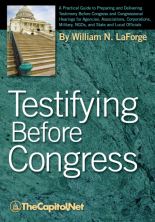From the Congressional Glossary – Including Legislative and Budget Terms
U.S. Code (U.S.C.) (USC)

Following the assignment of a public-law number and statutory citation, and the publication of a slip law, the House of Representatives’ Office of Law Revision Counsel, working largely under the auspices of the Speaker of the House, organizes those public laws that are “general and permanent” into the United States Code, popularly referred to as the U.S. Code or just the Code. Unlike the sequential organization scheme of the Statutes at Large, all laws in the U.S. Code are organized by subject matter. The user can readily understand what is current law by checking the Code; all cumulative changes in federal law are reflected in the Code.
The U.S. Code is divided into fifty-four subject titles, and each title is divided into sections. Sections in a title might be grouped as subtitles, chapters, subchapters, parts, subparts, or divisions. Some titles also have appendices. The Office of the Law Revision Counsel maintains the USC. (See “Links to Current and Recently Completed Positive Law Codification Projects” on the Law Revision Counsel’s web site.
Those titles enacted into positive law by Congress are legal evidence of the law contained in those titles (1 U.S.C. § 204). In legislative drafting, amendments to existing law are drafted to positive law, which explains why some legislation amends statutes while other legislation amends the U.S. Code.
Introduction to the United States Code
A consolidation and codification of the general and permanent laws of the United States arranged by subject under 50 titles, the first six dealing with general or political subjects, and the other 44 alphabetically arranged from agriculture to war. The U.S Code is updated annually, and a new set of bound volumes is published every six years. Available online from various sources, including Office of the Law Revision Counsel, U.S. House of Representatives, FDSys (GPO), Govinfo.gov, and Legal Information Institute.
The U.S. Code does not include regulations issued by executive branch agencies, decisions of the Federal courts, treaties, or laws enacted by State or local governments. Regulations issued by executive branch agencies are available in the Code of Federal Regulations. Proposed and recently adopted regulations may be found in the Federal Register.
Also see Official Title / Short Title / Popular Title / Popular Name; Slip Law; Statutes at Large; § 4.110 Administrative Offices of the House, § 9.70 Laws and Their Codification, § 9.73 Excerpt from the U.S. Code, in Congressional Deskbook.
More
- U.S. Code – Office of the Law Revision Counsel, U.S. House of Representatives
- U.S. Code – FDSys (GPO)
- United States Code – Govinfo.gov
- U.S. Code – Legal Information Institute (LII)
- Table of Popular Names – Cornell Legal Information Institute (LII)
- “Federal Statutes: What They Are and Where to Find Them,” CRS Report RL30812 (10-page PDF
 )
) - The Congressional Review Act (CRA) (CongressionalGlossary.com)
- “The Congressional Review Act: Determining Which ‘Rules’ Must Be Submitted to Congress,” CRS Report R45248 (49-page PDF
 )
) - “From Slip Law to United States Code: A Guide to Federal Statutes for Congressional Staff,” CRS Report R45190 (17-page PDF
 )
) - “Legislative Branch: Fiscal Year 2018 Appropriations,” CRS Report R44899 (43-page PDF
 )
) - “Legislative Research for Congressional Staff: How to Find Documents and Other Resources,” CRS Report R43434 (23-page PDF
 )
)
Courses
- Congressional Operations Briefing – Capitol Hill Workshop
- Drafting Federal Legislation and Amendments
- Writing for Government and Business: Critical Thinking and Writing
- Custom Training
- Preparing and Delivering Congressional Testimony and Oral Presentations, a Five-Course series on CD
- Congress, the Legislative Process, and the Fundamentals of Lawmaking Series, a Nine-Course series on CD
Publications

Testifying Before Congress

Pocket Constitution

Citizen’s Handbook to Influencing Elected Officials: A Guide for Citizen Lobbyists and Grassroots Advocates

Congressional Procedure
CongressionalGlossary.com, from TheCapitol.Net
For more than 40 years, TheCapitol.Net and its predecessor, Congressional Quarterly Executive Conferences, have been teaching professionals from government, military, business, and NGOs about the dynamics and operations of the legislative and executive branches and how to work with them.
Our custom on-site and online training, publications, and audio courses include congressional operations, legislative and budget process, communication and advocacy, media and public relations, testifying before Congress, research skills, legislative drafting, critical thinking and writing, and more.
TheCapitol.Net is on the GSA Schedule, MAS, for custom on-site and online training. GSA Contract GS02F0192X
TheCapitol.Net is now owned by the Sunwater Institute.
Teaching how Washington and Congress work ™

